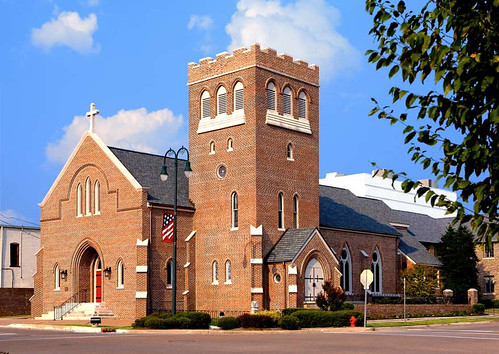
The 'emergent church' – growing but hard to define
[Episcopal Life] New ways of "being church" that developed in the past couple of decades are gathered under the term "emergent church."It's also called a conversation, a movement, a phenomenon – and defining it is "like chasing mercury around a chemistry lab table," said Phyllis Tickle, author of The Great Emergence: How Christianity is Changing and Why.
Although their emphasis on Scripture, the sacraments and their relationship to the established church vary widely, emergent churches are linked by their dedication to worship and ministry in the context of their location.
"A community in rural Iowa is going to be very different from the ones I've been involved with in Manhattan and Harlem because the places attract people with different stories and sensibilities in different environments," said Bowie Snodgrass, co-founder of New York's Faith House, described on its website as "an interdependent community." She recalled an Easter evening when more than 200 people attended a worship service honoring Mary Magdalene in a Manhattan club. She and a musician friend had developed the service with sex workers and artists who lived and worked in the neighborhood.
"We just do it," said the Rev. Jimmy Bartz, leader at Thad's, a mobile congregation under the authority of Bishop J. Jon Bruno of the Diocese of Los Angeles. "What we've leaned into is an ideal of creating a community of faith for people who wouldn't otherwise be attracted to traditional church," he said.
The Rev. Tom Brackett, church planting specialist for the Episcopal Church's Evangelism and Congregational Life Center, said most emergent church folk "answer the question, 'What kind of relationship would Jesus have with the institutional church?' with, 'He'd be out there on the steps, teasing people to serve in the world."
Read the rest at Episcopal Life Online.


No comments:
Post a Comment